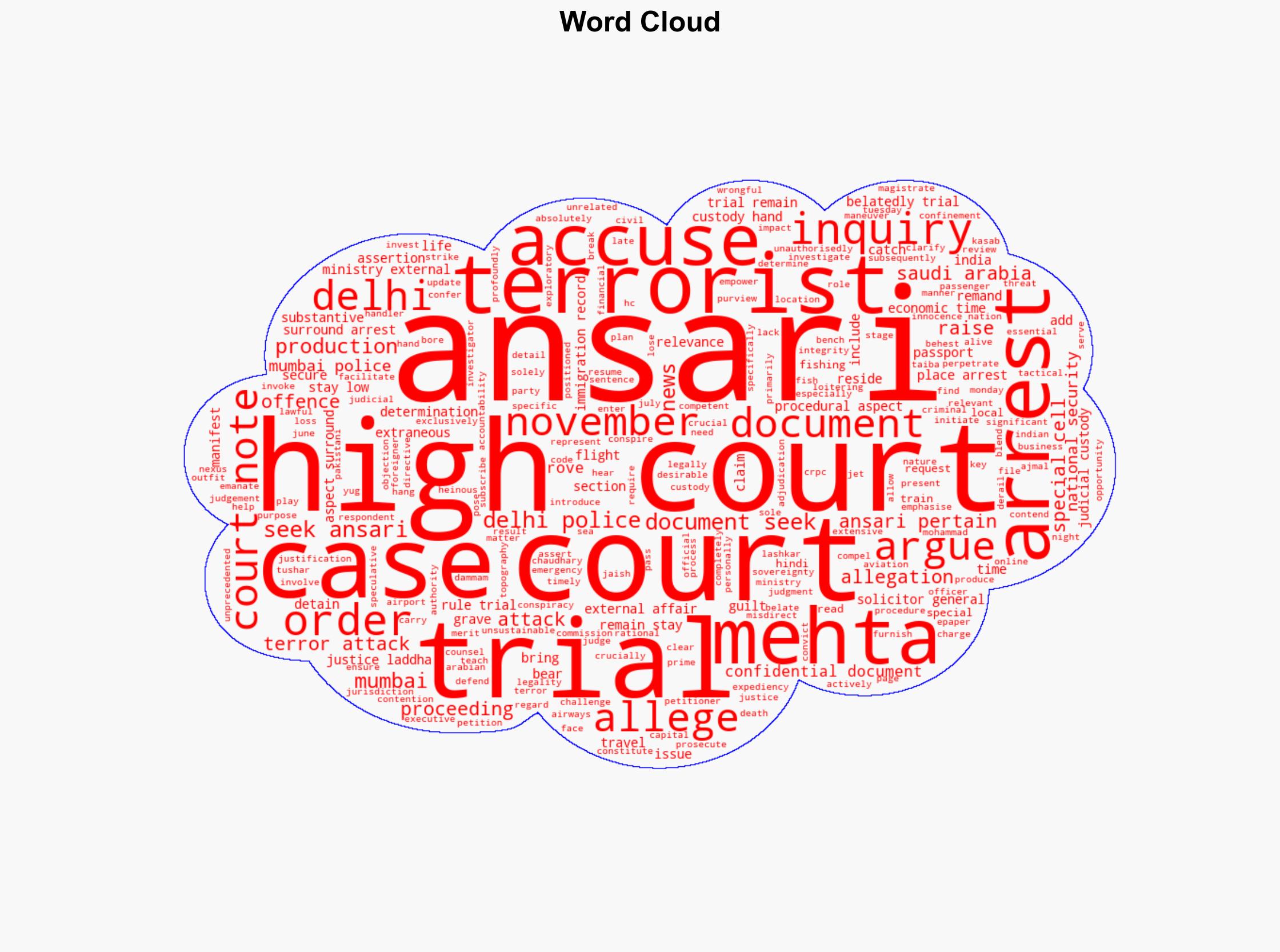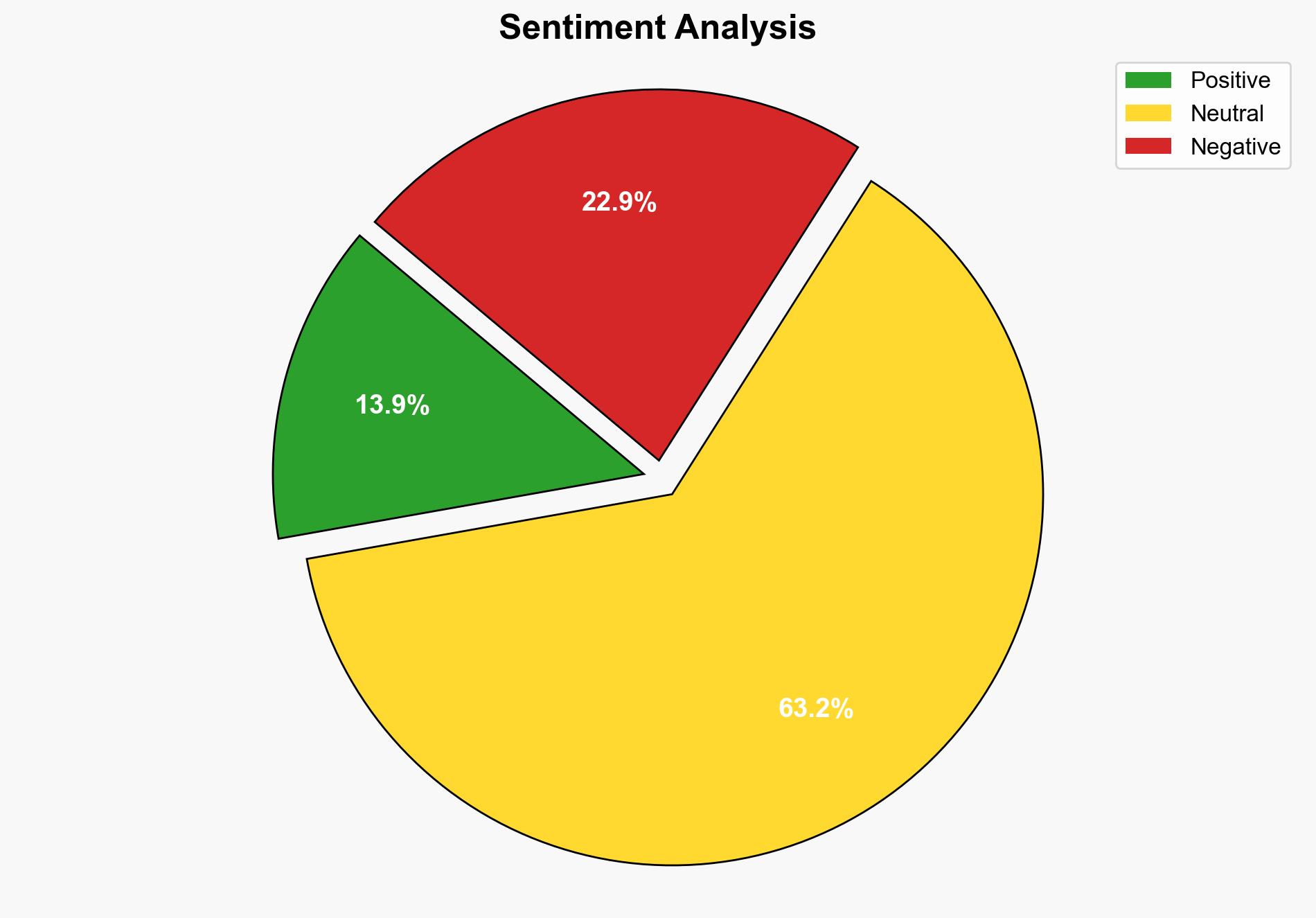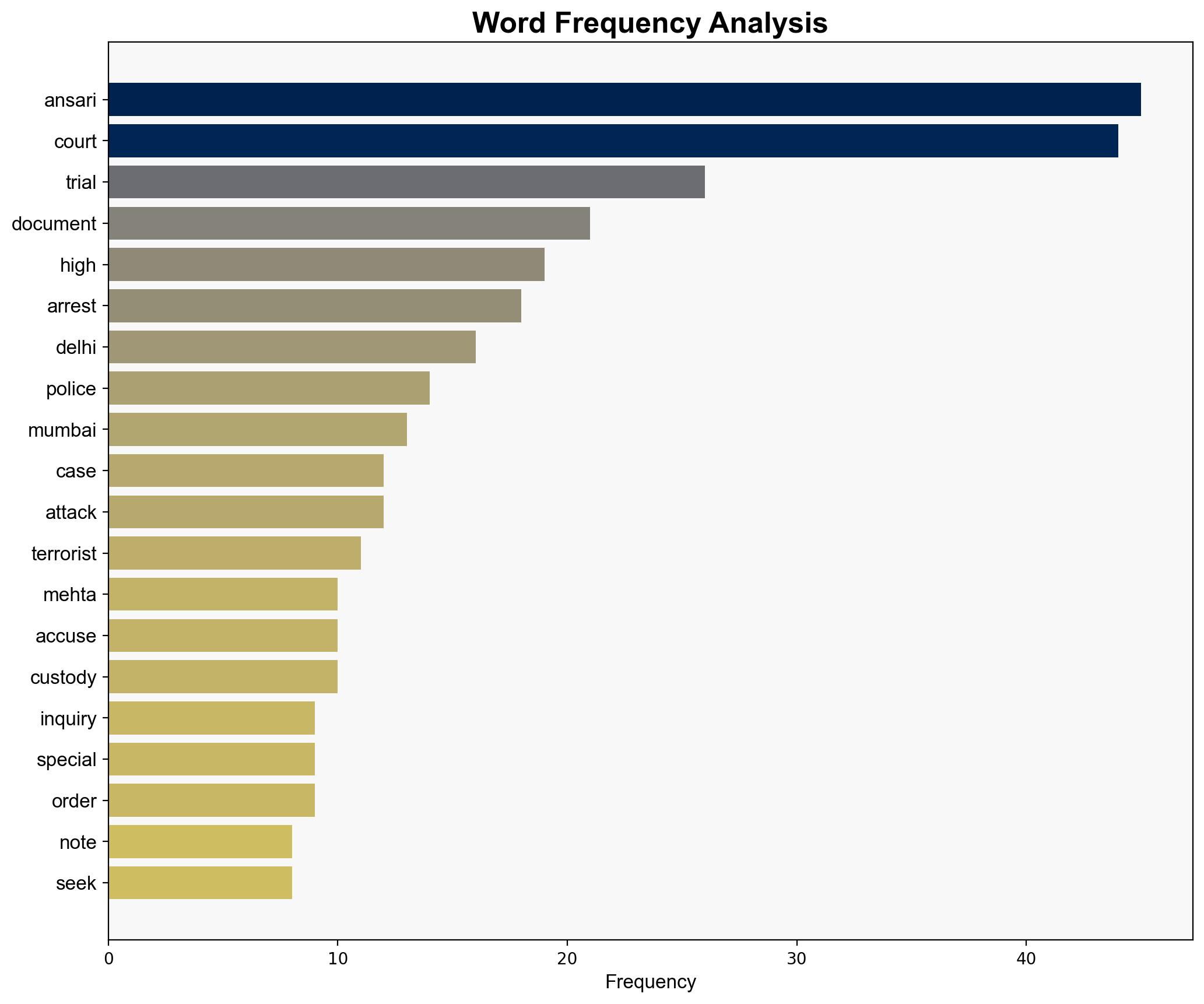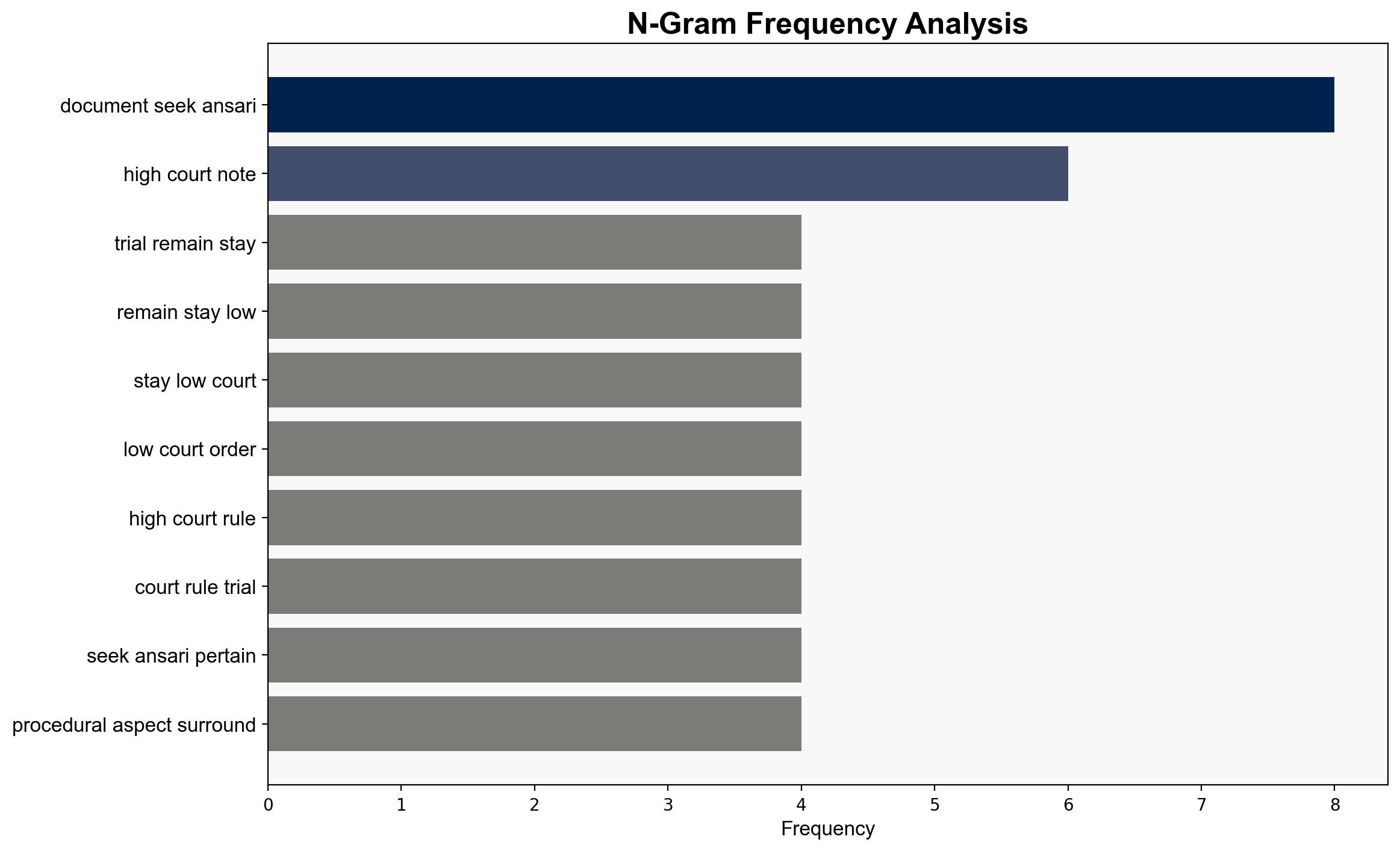2611 attacks case HC slams Abu Jundal’s document bid as ‘fishing inquiry’ quashes special court order – The Times of India
Published on: 2025-11-04
Intelligence Report: 2611 attacks case HC slams Abu Jundal’s document bid as ‘fishing inquiry’ quashes special court order – The Times of India
1. BLUF (Bottom Line Up Front)
The Bombay High Court’s decision to quash the special court order requiring the production of confidential documents related to Abu Jundal’s arrest is likely to expedite the trial process. The most supported hypothesis is that the request for documents was a tactical maneuver to delay proceedings. Confidence level: High. Recommended action: Monitor the trial’s progress and ensure any further legal maneuvers are swiftly addressed to maintain the trial’s momentum.
2. Competing Hypotheses
Hypothesis 1: Abu Jundal’s request for documents was a legitimate attempt to gather evidence for his defense, focusing on procedural irregularities during his arrest and extradition.
Hypothesis 2: The request was a strategic delay tactic, intended to derail the trial and introduce extraneous contentions unrelated to the substantive charges.
Using Analysis of Competing Hypotheses (ACH), Hypothesis 2 is better supported by the court’s ruling that the document request was a “fishing inquiry” and the emphasis on the need for expediency in the trial.
3. Key Assumptions and Red Flags
Assumptions:
– The court’s judgment is based on a thorough understanding of the case’s legal and procedural context.
– The documents requested are indeed unrelated to the substantive charges.
Red Flags:
– Potential bias in the court’s decision if influenced by external pressures.
– Lack of transparency regarding the content and relevance of the requested documents.
4. Implications and Strategic Risks
The court’s decision could set a precedent for handling similar cases, potentially limiting defendants’ ability to request documents perceived as irrelevant. This may lead to increased scrutiny of judicial processes in high-profile terrorism cases. There is a risk of perceived injustice if the defense’s ability to contest procedural aspects is unduly restricted, potentially impacting public perception and international relations.
5. Recommendations and Outlook
- Ensure transparent communication from the judiciary to maintain public trust and international credibility.
- Scenario-based projections:
- Best: Trial proceeds without further delays, leading to a timely verdict.
- Worst: Continued legal challenges result in significant delays, affecting public confidence in the judicial process.
- Most Likely: Some additional legal maneuvers occur, but the trial progresses with minimal disruption.
6. Key Individuals and Entities
– Abu Jundal (Zabiuddin Ansari)
– Justice Laddha
– Tushar Mehta
7. Thematic Tags
national security threats, counter-terrorism, judicial process, legal strategy




